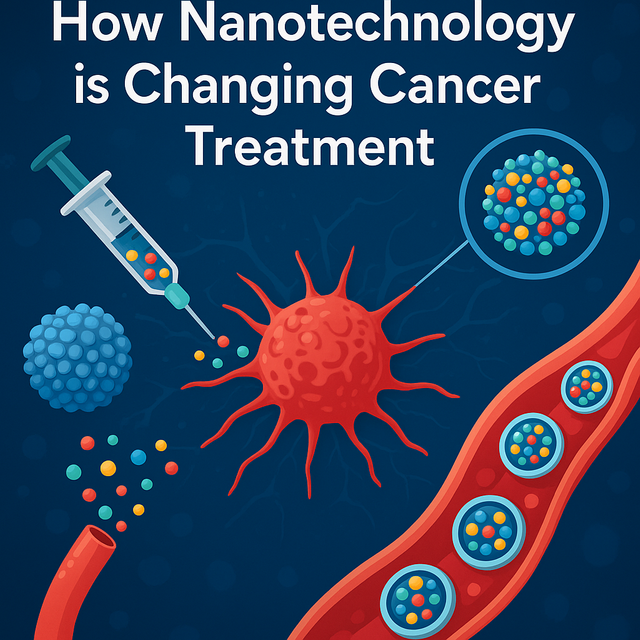How Nanotechnology is Changing Cancer treatment (my today's research) @nusratzahra
Introduction
Cancer treatment has long Been one of the most difficult tasks in medical science. although chemotherapy and radiation have saved lives, they tend to have excruciating side effects. But now, with the advent of nanotechnology, we are witnessing a new generation of targeted, effEctive, and less toxic cancer treatments.
what is Nanotechnology?
nanotechnology means handling materials at the 1-to-100-nanometer scale — tiny enough that thousands of nanoparticles might be across a human hair! Nanoparticles cAn be employed to deliver drugs to cancer cells, leaving healthy tissues intact.
How Nanotechnology Assist in Cancer Treatment
1. Targeted Drug Delivery
Nanoparticles are engineered to locate and enter cancer cells only.
This minimizes side effects in comparison with conventional chemotherapy.
Example:
Liposomes and dendrimers are forms of nanoparticles utilized for drug delivery.
2. early Diagnosis and Detection
Nano-biosensors can identify cancer cells in initial stages.
This enhances the possibility of effective treatment.
3. Hyperthermia Therapy
Certain nanoparticles have the ability to get heated when subjected to magnetic fields.
They are inserted into tumors and heated to destroy cancer cells without harming healthy cells.
4. Combination Therapy
Nanocarriers are capable of carrying several drugs simultaneously.
This aids in targeting cancer from various sides, thereby enhancing treatment.
Real-Life Advances in Nano Cancer Therapy
Doxil: An existing liposome-based drug with approval for cancer therapy.
Nanoshells produced at Rice University demonstrate great potential in the treatment of breast cancer.
Clinical trials are being conducted on several nanoparticle-based systems for lung, liver, and brain cancer treatments.
Possibilities in the Future
The future of nanotechnology in cancer therapy is promising:
Intelligent nanoparticles that only release medicine upon activation.
Customized nanomedicine tailored to the genes of a patient.
Employment of AI in creating improved, efficient nanoparticles.
Last Thoughts
Nanotechnology isn't merely a scientific innovation — it's a promise to millions. With less painful treatments, earlier diagnosis, and greater success rates, it is changing how we battle cancer.
